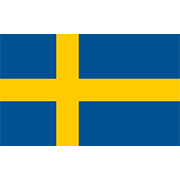Fiscal subject related
Fiscalization rules in Sweden require a certification procedure in some specific way. The proof of the certification is presented in the so-called manufacturer's declaration. However, the question arises in the terms: what needs to be performed when there is an update of the cash register version, and how does that affect the manufacturer's declaration?
Namely, the Swedish tax agency requires a manufacturer's declaration for cash register updates. More precisely, the Swedish Tax Agency, under Chapter 8, Section 1 of SKVFS 2014:9, mandates that every version of a cash register model or program must include a manufacturer's declaration. When a version is updated, manufacturers are required to submit a new declaration, detailing changes compared to the previous version along with appropriate explanations. Manufacturers can utilize form SKV 1509 as a temporary solution to comply with the reporting requirements. This regulation contains the mandatory elements of a named declaration. This regulation ensures transparency and proper documentation for all cash register updates.
Other news from Sweden
New document was uploaded: EV-chargers from the Fiscalization Perspective in Sweden
 Sweden
Author: Nikolina Basić
Sweden
Author: Nikolina Basić
This is a regulatory analysis / compliance guidance document focused on fiscalization and VAT treatment of EV charging in Sweden. Read more
Subscribe to get access to the latest news, documents, webinars and educations.
Already subscriber? Login


Sweden introduces Digital Audit era: Tax Authority gets real-time access to business records.
 Sweden
Author: Nikolina Basić
Sweden
Author: Nikolina Basić
Sweden is entering a digital audit era by granting the Tax Authority near real-time access to businesses’ accounting, VAT, and financial records through cloud-based systems. This reform marks a major shift toward proactive, digital-first tax compliance and fundamentally changes how audits are conducted. Starting in April 2026, Sweden’s tax administration will undergo one of i... Read more



Government of Sweden proposes a temporary VAT reduction on food.
 Sweden
Author: Nikolina Basić
Sweden
Author: Nikolina Basić
Sweden has proposed a temporary VAT reduction on food, lowering the rate from 12% to 6% to ease consumer costs under bill Prop. 2025/26:55. If approved, the reduced rate will apply from 1 April 2026 through 31 December 2027. In VAT legislation in Sweden, a new bill, Prop. 2025/26:55, has been introduced to temporarily lower the Value Added Tax (VAT) on foodstuffs from 12% to 6%. The proposal marks... Read more



Fisalization in Sweden: how to correct the wrong payment method recorded in the cash register
 Sweden
Author: Nikolina Basić
Sweden
Author: Nikolina Basić
We clariify if businesses have to issue a return receipt if a wrong payment method is recorded in a cash register? Read more
Subscribe to get access to the latest news, documents, webinars and educations.
Already subscriber? Login


Swedish Tax Agency Issues new amendments to Cash Register Regulations
 Sweden
Author: Nikolina Basić
Sweden
Author: Nikolina Basić
The Swedish Tax Agency has amended its cash register regulations (SKVFS 2025:8), effective October 1, 2025, updating rules on registration, malfunction reporting, and supervisory controls. Key changes include repealing certain provisions, requiring individual registration of each unit, and clarifying exemptions for customer-held devices. The Swedish Tax Agency has announced new amendments to its e... Read more



Sweden proposes a temporary VAT cut on food and bottled water starting in April 2026.
 Sweden
Author: Nikolina Basić
Sweden
Author: Nikolina Basić
Sweden’s Ministry of Finance has proposed cutting VAT on food and bottled water from 12% to 6% between April 1, 2026, and December 31, 2027, to ease household costs and support purchasing power. The measure, excluding alcohol and certain beverages, is aimed at countering inflation and awaits parliamentary approval. The Swedish Ministry of Finance has announced a proposal to temporarily reduce the... Read more



Swedish Tax Court Clarifies VAT Rules for EV Charging and Network Access
 Sweden
Author: Nikolina Basić
Sweden
Author: Nikolina Basić
The Swedish Tax Court’s Advance Notice No. 15-25/I clarified that both electricity supplied for EV charging and fixed network access fees are subject to Swedish VAT, as the place of supply is considered Sweden. The case involved a foreign EV charging app operator with no permanent establishment in Sweden, highlighting that domestic consumption triggers VAT liability regardless of the supplier’s location. Read more
Subscribe to get access to the latest news, documents, webinars and educations.
Already subscriber? Login

